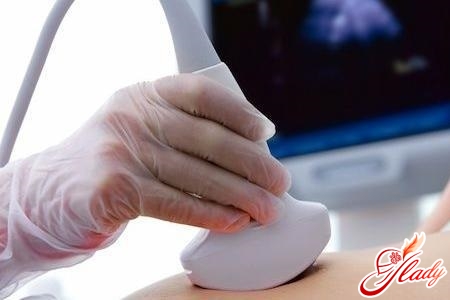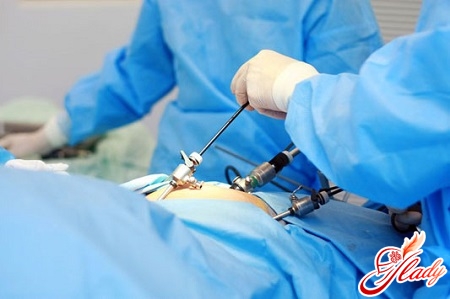
Every woman, both young and mature,age, it is necessary to know about such a dangerous pathology as an ectopic pregnancy. According to statistics, this phenomenon occurs on average in 15% of women on the planet. To avoid possible complications and associated troubles, it is necessary to arm yourself with some knowledge about the occurrence of an ectopic pregnancy, its course and subsequent treatment. It is very important to understand that an ectopic pregnancy occurs unpredictably and is difficult to predict. This pathology has been known and described in medical treatises since the 11th century. More recently, an ectopic pregnancy in advanced forms most often led to severe complications and, as a result, death. Currently, with the help of high-quality modern surgery, ectopic pregnancy is treated much more effectively and much easier. Highly functional medical equipment and technology make it possible to reduce the risks during operations to almost zero. However, gynecologists around the world note an average increase in cases when an ectopic pregnancy is difficult enough for timely and accurate diagnosis. Therefore, it is important to know for yourself what an ectopic pregnancy is: signs, symptoms, characteristics, causes of its occurrence, treatment methods and subsequent rehabilitation.

How does an ectopic pregnancy arise, what is it, its first signs
During a normal pregnancy, the eggAfter fertilization, it leaves the fallopian tubes and attaches to the uterus, where it continues to develop until the moment of birth. In case of abnormal pregnancy development, due to certain circumstances, the fertilized egg (fertilized egg) does not enter the uterus, but is attached to the fallopian tube, and in rarer cases - to the ovaries or abdominal cavity, from where, during medical intervention, doctors have to extract the incorrectly attached egg with the fetus. Ectopic pregnancy as a pathology is well known and sufficiently studied. The most common form of this anomaly is tubal ectopic pregnancy. The delay of the egg in the fallopian tubes indicates their insufficient and reduced patency. The fertilized egg, almost a month after its attachment to the wall of the tube, having increased in volume and size, can lead to a rupture of the tube. In this case, there is a very high probability of severe bleeding with the leaked blood entering the abdominal cavity. Not only health, but also the life of a woman at the moment when an ectopic pregnancy develops is under great threat. Therefore, it is very important when planning a pregnancy to know the first signs of an ectopic pregnancy, undergo a full medical examination and eliminate all possible disturbances in the normal functioning of the body in order to avoid complications later.
Causes of an ectopic pregnancy
So why does an ectopic pregnancy happen?беременность и становится возможным ее возникновение? Из-за чего оплодотворенная яйцеклетка сбивается с правильного курса следования и вдруг оказывается в совершенно не предназначенном для ее дальнейшего развития месте? Внематочная беременность и связанные с ней проблемы заключаются в плохом функционировании маточных труб, проходимость которых в силу каких-либо факторов и дестабилизирующих причин может быть нарушена. Как правило, этому предшествуют тяжелые сложные роды или аборты, а также текущие или перенесенные ранее воспалительные заболевания гениталий и различного рода инфекции. Слизистая оболочки матки из-за болезни опухает и, находясь в этом состоянии, склеивается в некоторых местах, из-за чего сами трубы теряют свою возможность к сокращению. Помимо прочего внематочная беременность может появиться и в случае недостаточного развития фаллопиевых труб (инфантилизма). Инфантильные (незрелые, неразвитые) трубы по своему строению и форме являются узкими, длинными и извилистыми, с достаточно суженными просветами. Они лишены способности к сокращению и возможности проталкивания плодного яйца вперед к матке (первый внематочной беременности признак). На определенном этапе онтогенеза у плодного яйца начинают развиваться ворсинки, благодаря которым оно имеет возможность и способность прикрепляться для дальнейшего своего развития к стенкам матки и получать за счет этого постоянное кровоснабжение. Если же к определенному времени плодное яйцо не прибыло в матку, то оно крепится в том месте, где сейчас находится (второй внематочной беременности симптом). Тонкие и нежные стенки фаллопиевых труб не имеют возможности растягиваться, как маточные ткани, из-за чего вскоре наступает их разрыв. Происходит это примерно между четвертой и шестой неделями после оплодотворения яйцеклетки. В результате разрыва стенок труб кровь устремляется прямиком в брюшную полость. Как следствие, возникают тошнота и сильные острые боли внизу живота, напоминающие предродовые схватки. Достаточно часто при этом происходит потеря сознания, могут возникнуть судороги. Разрыв крупных кровяных сосудов при невозможности оказания квалифицированной медицинской помощи может закончиться трагически и привести к летальному исходу. Правда, в ряде случаев схема развития действий происходит в ином направлении, когда плодное яйцо лопается и вытекает в брюшную полость, а вместе с ним вытекает и определенное количество крови. Данные обстоятельства также сопровождаются тошнотой и кровянистыми выделениями из половых органов. Трубный аборт сопровождается сильной болью, постепенно стихающей через некоторое время. Большинство женщин из числа тех, кому довелось испытать это на себе, после спада болезненных приступов морально расслабляются, предполагая, что все уже позади. Однако радоваться здесь несвоевременно. Обязательно будет нужно в срочном порядке обратиться за оказанием помощи и консультацией к медицинским специалистам во избежание и исключение любых возможных вариантов развития патологических болезненных симптомов, например, перитонита — гнойного воспаления брюшной полости, сопровождающегося общим тяжелым состоянием организма. В большинстве случаев перитонит несет прямую угрозу не только здоровью, но и жизни пациента, что требует неотложной медицинской помощи. Прогнозы в случаях несвоевременного или неквалифицированного лечения перитонита весьма неблагоприятны, а последствия очень опасны. 
Signs and symptoms of ectopic pregnancy
Practice shows that a simple test forpregnancy detection reflects and records the signs of an ectopic pregnancy, as in the case of normal conception. It will be possible to detect and identify the difference only as a result of an ultrasound examination. In this case, medical specialists conducting an ultrasound examination will not detect the presence of a fertilized egg in the uterus and will conduct additional tests, as a result of which they will be able to diagnose a probable pathology at the earliest stages of its development. Deviation from the normal development of the fetus can be diagnosed as early as the second week of pregnancy. To do this, it is only necessary to insert the sensor of the ultrasound diagnostic device into the vaginal cavity to conduct the examination. After this, as a rule, diagnostic laparoscopy is prescribed, which gives the most accurate analysis results. Another method of testing is that it is necessary to take a blood sample for its hormonal analysis. The first and main signs of an ectopic pregnancy in the early stages include bloody discharge from the vagina (at first they may not be very significant). After this, painful sensations arise in the lower abdomen. These pains begin to acquire an increasing character as the pathology itself develops. At this point, the pains can become very strong, sometimes they resemble cramping pains. It is quite difficult to make an accurate diagnosis yourself, but it is quite possible to suspect an ectopic pregnancy in the early stages, based on the signs listed above. If, in addition to the usual symptoms of pregnancy (whether it is a delay in menstruation, toxicosis, psycho-emotional irritability, a violation of taste sensations and addictions, etc.), there are also not very strong aching pains in the lower abdomen, bloody discharge, then it is necessary to immediately and without any hesitation contact a medical institution for a gynecological examination in order to exclude any pathology in the development of the fetus. Quite often, it is in such cases that an ectopic pregnancy occurs.
What to do with an ectopic pregnancy: treatment and rehabilitation
For the treatment of an ectopic pregnancyThere are several methods that are used at different stages of its development. If the slightest signs indicate that the patient may have an ectopic pregnancy, medical specialists will suggest in-patient observation. You should not categorically refuse this, since all the examinations necessary to determine the exact location of embryo implantation will be much easier to carry out in a hospital setting. At the early stages of detection of an ectopic pregnancy, the doctor will be able to terminate it in much more gentle ways. One of such low-traumatic methods of medical intervention is laparoscopy. This is a type of diagnostic medical examination of the abdominal cavity and its organs, as well as a method of modern surgery, in which research, analysis and operations on internal organs are carried out through a small opening or puncture (from 0.5 to 1.5 cm in size) in the abdominal wall using a special optical device - a laparoscope. Through a very small incision in the abdominal skin, a special instrument, a laparoscope, is inserted into the abdominal cavity. This device has an optical system similar to a device for gastroscopy. Therefore, all manipulations of the doctor, the surgical field itself and the entire process of the operation are displayed and monitored on the monitor of the device. Using a laparoscope, the doctor removes the fertilized egg, acting like a mini-abortion. In itself, this is a fairly safe and relatively painless procedure. The surrounding tissues and internal organs are not affected or injured during the operation. There is no risk of postoperative adhesions and scars. The risk of fatal outcomes in such operations in medical practice is extremely minimal. The greatest consolation for a woman in this case will be the fact that this operation prevents injury to the fallopian tubes, and after undergoing the necessary course of treatment and rehabilitation, after some time she may well become pregnant again and bear a healthy, full-fledged child.
Ectopic pregnancy and tube rupture
In case of more severe consequences of developmentectopic pregnancy, when the fallopian tube has ruptured, an urgent question arises: to preserve or remove it? Of course, it is possible to preserve the fallopian tube, but only if its rupture has not yet occurred or was insignificant. When the tube ruptures, a closed organ-preserving surgery called salpingotomy (or tubotomy) is usually prescribed. This is an operation to remove the affected fallopian tube. This procedure is less painful, blood loss during the operation is much less. After it is performed, the body's recovery process is much faster, and the patient spends much less time in the hospital. Thanks to salpingotomy, the risk of repeated pathological abnormalities during subsequent conception and bearing a child is significantly reduced.
Ectopic pregnancy and postoperative treatment
In a certain number of women (from 4 to 8%)so-called pregnancy tissues remain in the fallopian tubes. Therefore, the attending physician may prescribe the introduction of a special drug that stops the growth and development of tissues. This drug is called methotrexate - a specialized antitumor drug. It is sometimes used as an alternative to surgery. It is used in the earliest stages of pregnancy, when pregnancy hormones have not yet increased significantly in the woman's body. This drug has a certain narcotic effect. It causes the absorption of pregnancy tissues by the body. When treating with such a drug, you should be extremely careful, only a few injections are required. After this, bleeding from the genitals and the so-called cleansing of the body from the remains of pregnancy tissues will occur for several weeks. If the presence of the disease is diagnosed early enough and the necessary operation to remove the embryo is performed in the early stages, the use of this drug may not be necessary. But the decision to prescribe the best and optimal treatment for each individual patient is still made by the doctor, and everything depends on his qualifications and experience in this matter.









